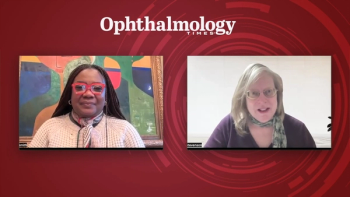
- Ophthalmology Times: September 1, 2020
- Volume 45
- Issue 14
Ophthalmology taking the treatment conversation online
Social media sites offer physicians an opportunity for patient education.
This article was reviewed by Heba Mahjoub, BS
Ophthalmologists have a way to be more active in educating their patients: A recent analysis of a subreddit on eye triage indicated that patients are seeking information from other patients and optometrists rather than ophthalmologists.
Evidence shows that patients are turning increasingly to social media to get medical information.
One of these outlets is Reddit, a popular, growing platform that allows users to share stories, seek and post information, and engage in discussions with other users on every topic imaginable.
Related:
Patients have sought information on medical topics such as urinary incontinence, rheumatoid arthritis, human papillomavirus, and underage use of Juul products, according to Heba Mahjoub, BS, and colleagues Shameema Sikder, MD, at Johns Hopkins University in Baltimore, Maryland, and Arpan Prabhu, MD, at the University of Arkansas for Medical Sciences in Little Rock.
Mahjoub is a medical student at Johns Hopkins School of Medicine in Baltimore.
To determine patient concerns, improve online sources of patient education, and help predict and circumvent areas of confusion before patients depart from a clinical appointment, the investigators wanted to understand what information patients were seeking on ophthalmologic topics on the subreddit “eyetriage,” created in January 2019 (reddit.com/r/eyetriage).
This subreddit focuses on patient concerns rather than ophthalmologists who share information among themselves.
Mahjoub and her colleagues manually collected and assessed the first 22 posts and their first 3 comments in each month of 2019.
Related:
The posts were sorted by date and time, type, content, emotional tone, and numbers of upvotes and reply comments.
The reply comments, the investigators explained, were characterized based on content, emotional tone, time of comment, and user background.
Two authors independently reviewed and coded all posts for inclusion in the final database.
Results of the analysis
The investigators analyzed 200 posts and 456 replies. The vast majority of posts, 198 (99%), were questions—another post was information and another was humorous—and 26 (13%) included an image. Thirty-two unique post codes were generated, along with 11 reply comment codes, Mahjoub reported.
“Regarding the post codes, the most common codes were seeking diagnosis [21.0%], surgical complication [11.5%], and alternative medication options [6.50%],” she said.
Others included surgical options (5%), blurred vision (4%), and trauma-induced deficits (4%). When possible, the investigators identified the users who replied to each post.
The top comments (Figure 1) were from self-identified patients (36%), optometrists (33%), and ophthalmologists (11%); others included unspecified users (9%), optometry students (3%), and certified ophthalmologist assistants (2%).
The top comment codes for the replies were treatment advice (34.7%), advice deferred to other health specialists (15.4%), and sharing information (13.2%).
Related:
Implications
“The results provide some insight into what ophthalmology patients are asking online,” Mahjoub said.
Clarification of diagnoses was one theme identified. Based on this, the investigators speculated about the helpfulness of giving ophthalmology patients access to clinic notes to help clear any confusion.
The legal ramifications of sharing medical advice online was also highlighted. Some providers, Mahjoub pointed out, might be cautious about so doing out of fear of misguiding patients who had not been assessed during an appointment.
“It is important to use social media as a supplemental tool rather than as a substitute for an inpatient appointment,” she emphasized.
Another aspect is that providers who are cautious about misguiding patients might use social media to educate one another in clinical practice and academia, she said.
Related:
Finally, Mahjoub pointed out, controversy may exist about using social media because providers view this as an encroachment on their fields.
“It will be interesting to see the role of social media in future practice,” she said.
“The results showed that there clearly is a growing need for medical professionals to advise patients online in a regulated manner. Incorporation of board-certified ophthalmic providers could ease the patient burden and clarify the source of most patients’ concerns before they leave a medical appointment. This realm has the potential to be advertised by various ophthalmic societies, such as the American Academy of Ophthalmology.”
--
Heba Mahjoub, BS
e:[email protected]
Mahjoub has no financial interest in this subject matter.
Articles in this issue
over 5 years ago
Improve patient comfort with intravitreal injectionsover 5 years ago
Stem cells for dry AMD with GA show promise in early studyover 5 years ago
Astigmatism management software proving to be accurate, preciseover 5 years ago
Examining ocular allergy, quality of lifeover 5 years ago
Improving surgical safety, efficiency, and outcomes for patientsover 5 years ago
IOL offering treatment options for ophthalmologistsover 5 years ago
Unproductive worry: Conquering fear during a pandemicNewsletter
Don’t miss out—get Ophthalmology Times updates on the latest clinical advancements and expert interviews, straight to your inbox.





























